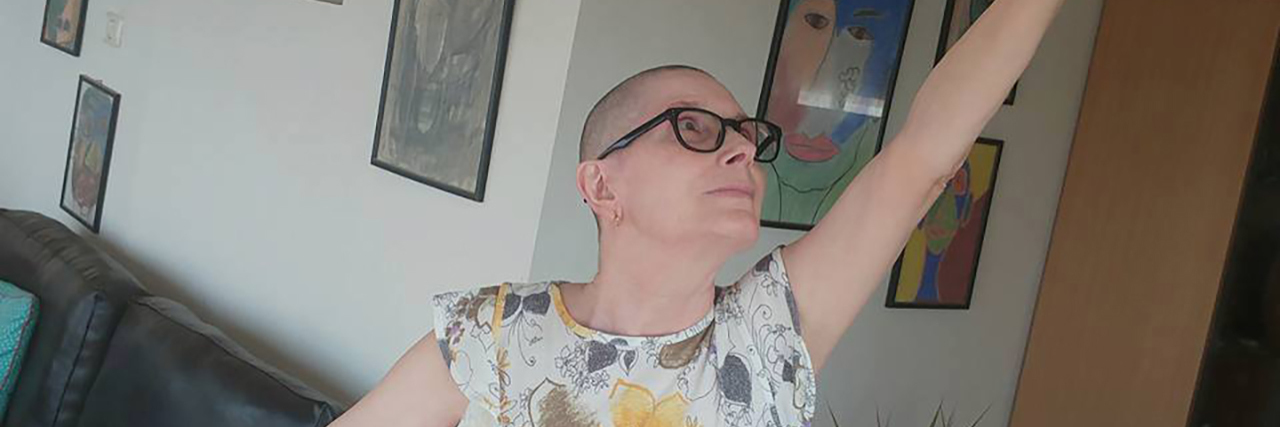My mom, a woman with complex disabilities, has gotten used to me photographing her about once a week, as part of my activism in making women with disabilities visible. Today I came for a visit and didn’t remember our weekly ritual. Through pantomime and her 30-40 word vocabulary, she protested and demanded a photo. These are the last two photos of my inspiring mother for a while.
I post her photos as part of my activism on the issue of women with disabilities, and I always make sure to mention her complex disability. Last week, someone on Facebook noted she loves the photos, but the fact that I keep repeating and mentioning her disability disturbs her. I asked her why, as I wanted to understand. She said that if she didn’t know my mom had a disability, she wouldn’t notice, and she would treat her “normally,” as if she didn’t have a disability.
This view of people with disabilities is quite widespread, and there is a big problem with it. I will explain, giving as an example my personal experience with my mom. My mom’s disability is complex – the CVA (cerebrovascular accident) has affected the whole of her right side of body, as well as the communication center in her brain, leaving her with an extreme case of aphasia. Aphasia is an inability to comprehend and formulate language. Thus, my mom has challenges getting around, she can’t cook, she can’t shower herself, and she needs assistance in most daily activities. Due to the aphasia, her vocabulary is limited to some 30-40 words.
This situation has required my dad and I to adapt and change our whole lives according to Mom’s needs. My dad showers her and cooks for her every day, and I care for her three-four times a week. When I am with her, I cannot treat her “normally” like I would any able-bodied person. I must adapt to her rhythm and movements, slow down, and I must speak in simple sentences, making sure she understands what I say. I must be attentive to what she is trying to convey to me through her limited vocabulary, combined with her body language.
So, no. We cannot treat people with disabilities as if they were able-bodied, as that would be doing them injustice, and might result in harming them. We – and when I say we, I mean the whole of society – must adapt, must make room and must become inclusive of individuals who are “different,” be it individuals with disabilities, individuals from the LGBTQ community, people of color, or any other “others.”
I believe the way to make our society inclusive is not by ignoring others’ differences, as then we would be deleting that part of their identity. Instead we must talk about the differences, instill acceptance and tolerance in our children, and find ways to make our societies truly inclusive.
Read more on Khulud’s website.
We want to hear your story. Become a Mighty contributor here.
Photo by contributor.

